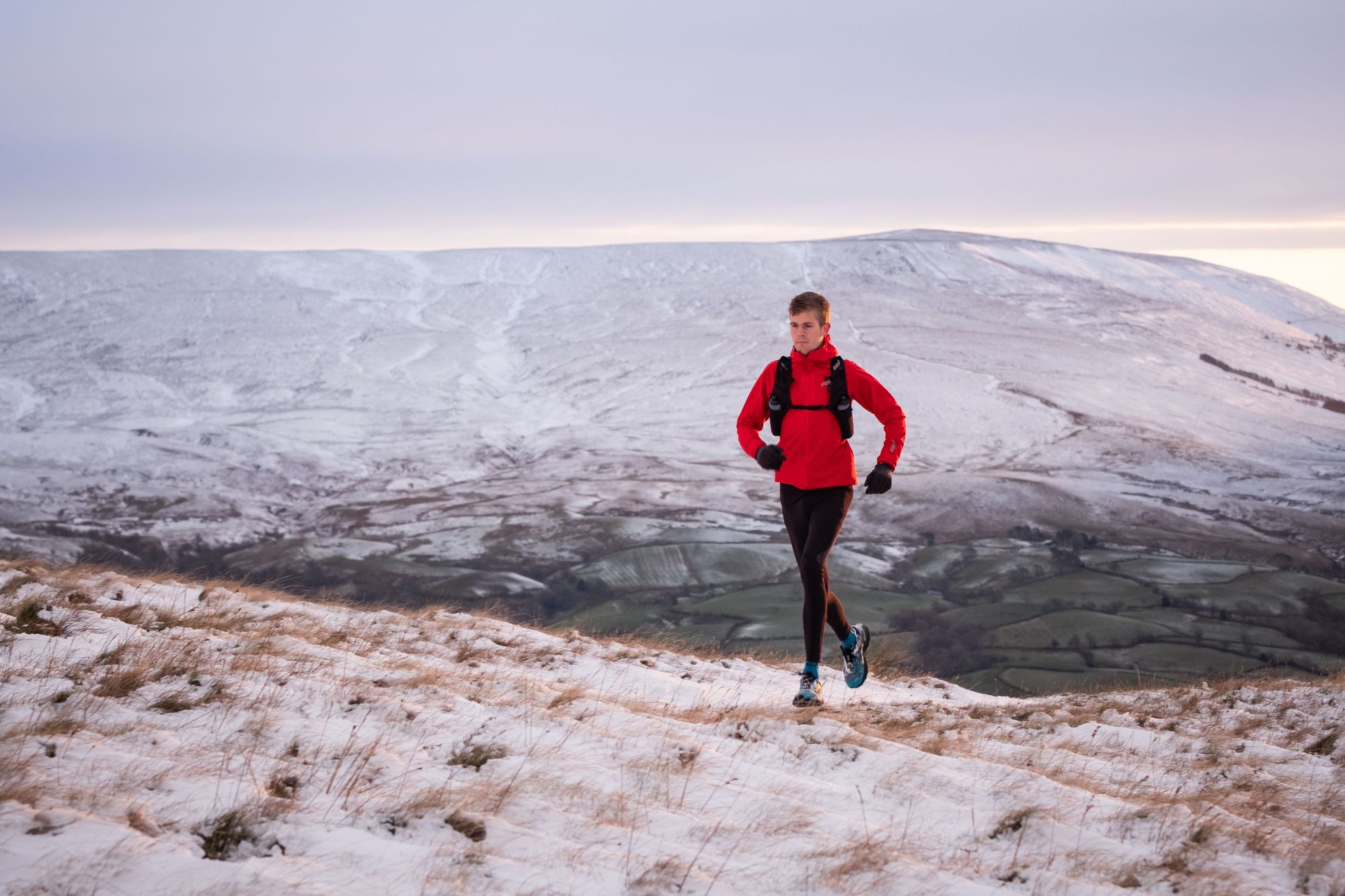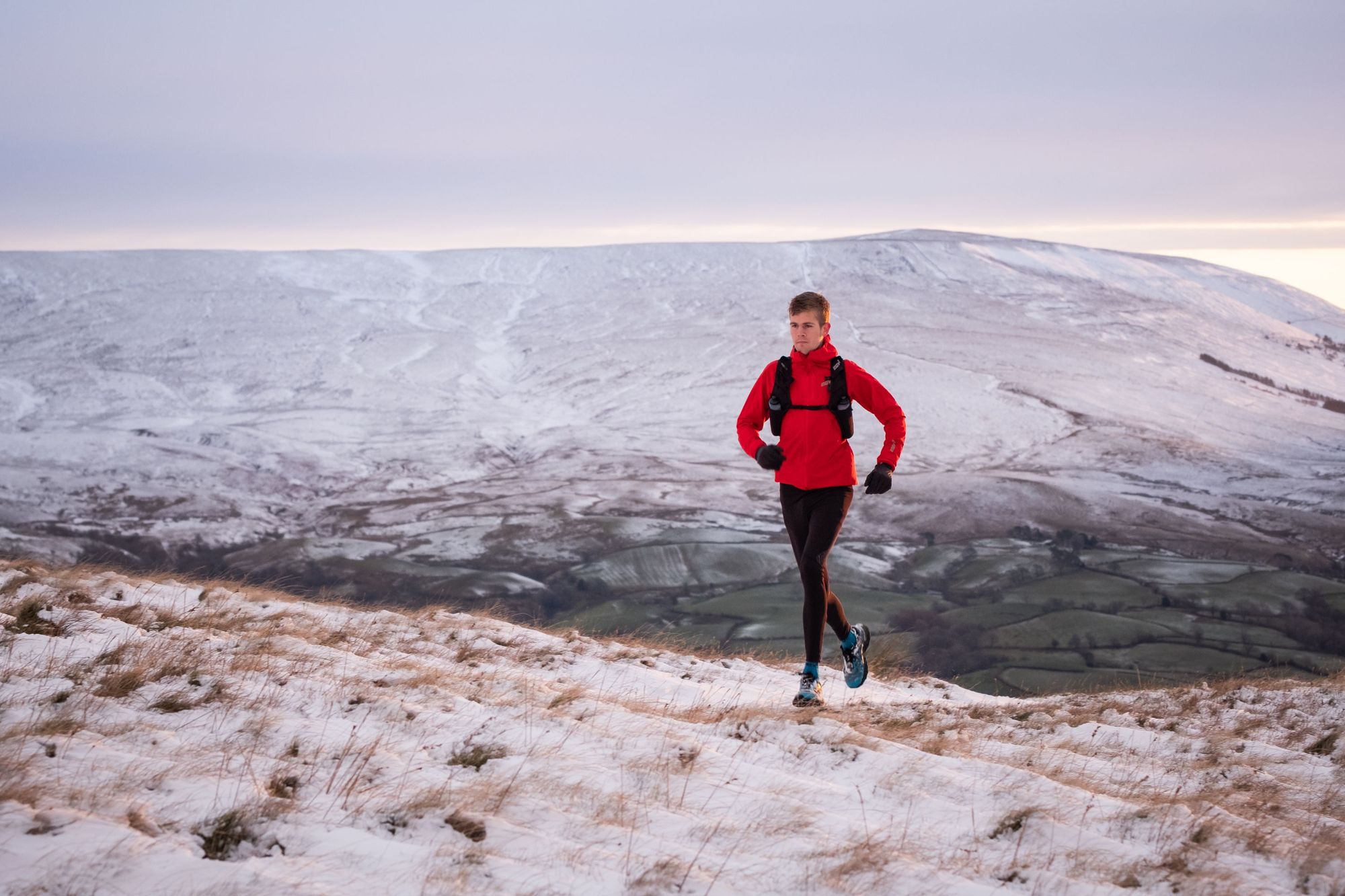
Alex Staniforth has already lived a lifetime of often-turbulent adventure at the age of just 27. “Most of my story has been based on two Everest attempts when I was a teenager,” he tells me. “I survived the avalanche in 2014 when I was 18, and then the earthquake in Nepal in 2015.”
Staniforth was just below camp one and 6,000m when the earthquake struck Nepal on 25 April, triggering an avalanche from Pumori into Everest Base Camp that would kill at least 22 people - surpassing the avalanche Alex had survived the year before as the deadliest disaster ever to occur on the mountain.
The more time I spent in the hills, the more I found this confidence and this growth mindset that I’d never had before.
“Three of our team at Base Camp sadly died, and had we not left Base Camp that morning I wouldn’t be speaking to you now,” he says. “I look back at that with a sense of gratitude, because it’s given me an insight into what’s important - but also with a lot of guilt. I’ve been dealing with that mentally ever since... because, I shouldn’t be here. Those guys at Base Camp were just doing their jobs.”
This sort of candour is not unusual for Alex, who as well as being an adventurer, ultra-runner, author and motivational speaker, is also the co-founder of the mental health charity Mind Over Mountains, who offer “immediate and accessible support through therapeutic outdoor experiences.” These range from day walks to retreats in the outdoors with professional support, counselling, one-to-one coaching and generally, aiming to empower people through nature.
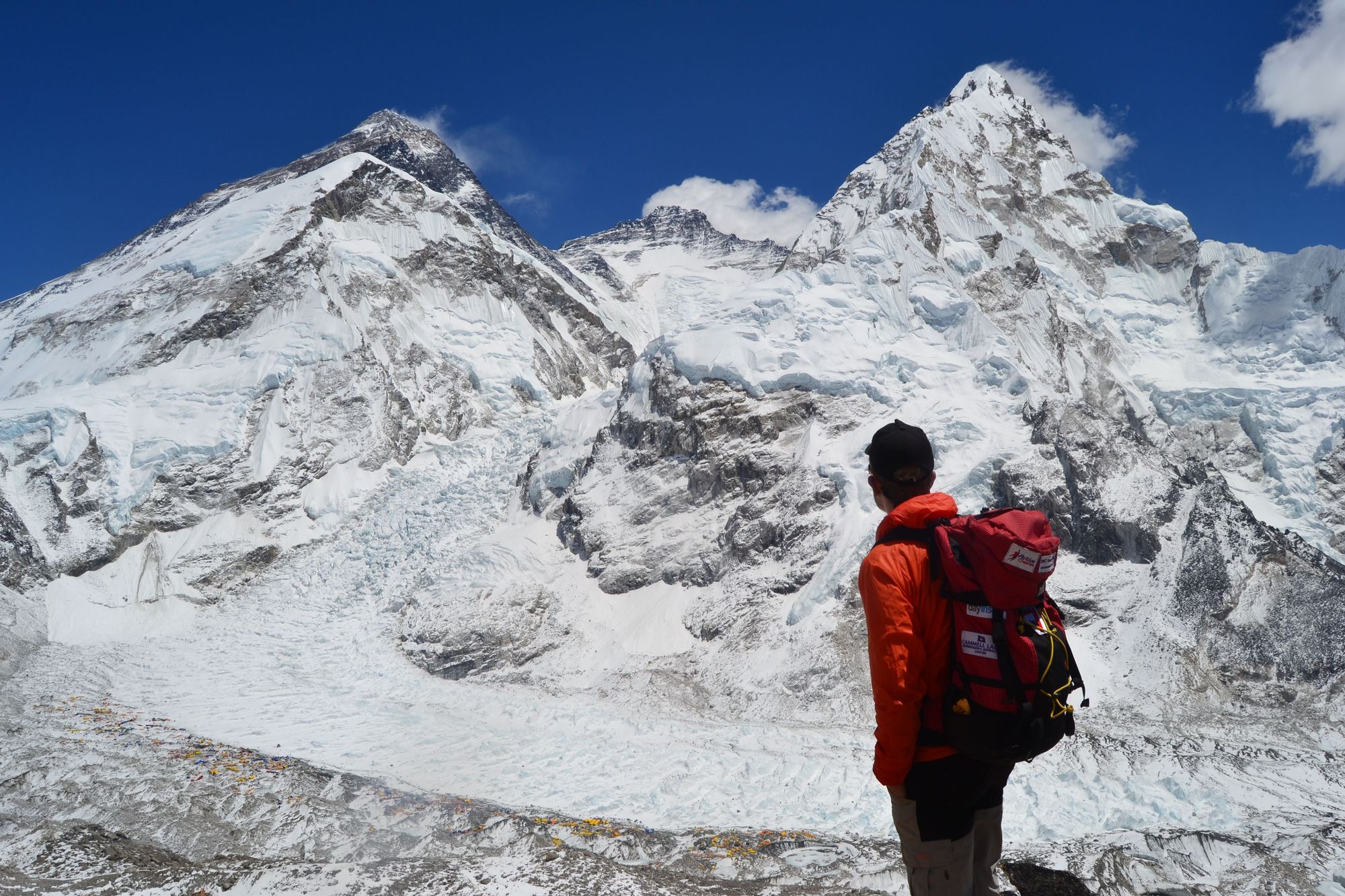
“I had a stammer and epilepsy as a child,” says Alex. “And I was relentlessly bullied at school, but that's what inspired me to find the outdoors as a way of fighting back, to find my safe space. The more time I spent in the hills, the more I found this confidence and this growth mindset that I’d never had before.”
After Everest, Staniforth went out to Cho Oyu in Tibet, the sixth highest mountain in the world.
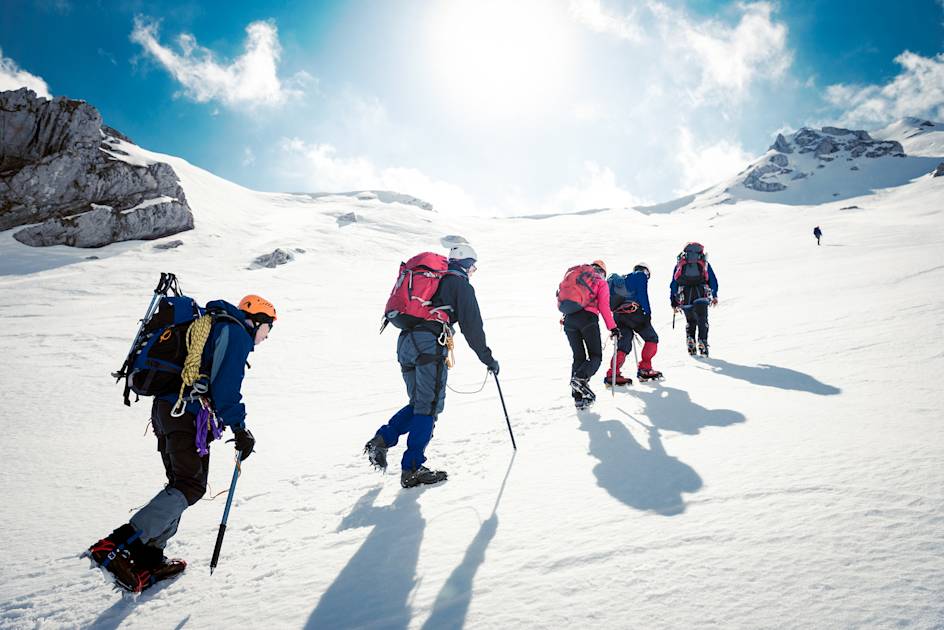
“I didn’t summit Cho Oyu either,” he says. “I got to 7,000m and it wasn't an avalanche, it was the altitude - and I got the early onset of cerebral oedema. But on that mountain, I had this epiphany. Why am I really here? Had I been in that tent at base camp, buried under a foot of snow and rock, what would I have left behind? It's heavy stuff when you're only 21. But that was when I had closure.”
Staniforth was inspired to look at more meaningful adventure opportunities closer to home, eventually leading to Climb The UK, a self-created challenge where he climbed to the highest point of all 100 UK counties in 72 days, raising over £25,000 for mental health charity Young Minds UK in the process. “I was blown away by the people, the places, the generosity,” he says. “People would come and join me and become part of it. It became a whole new Everest for me.”
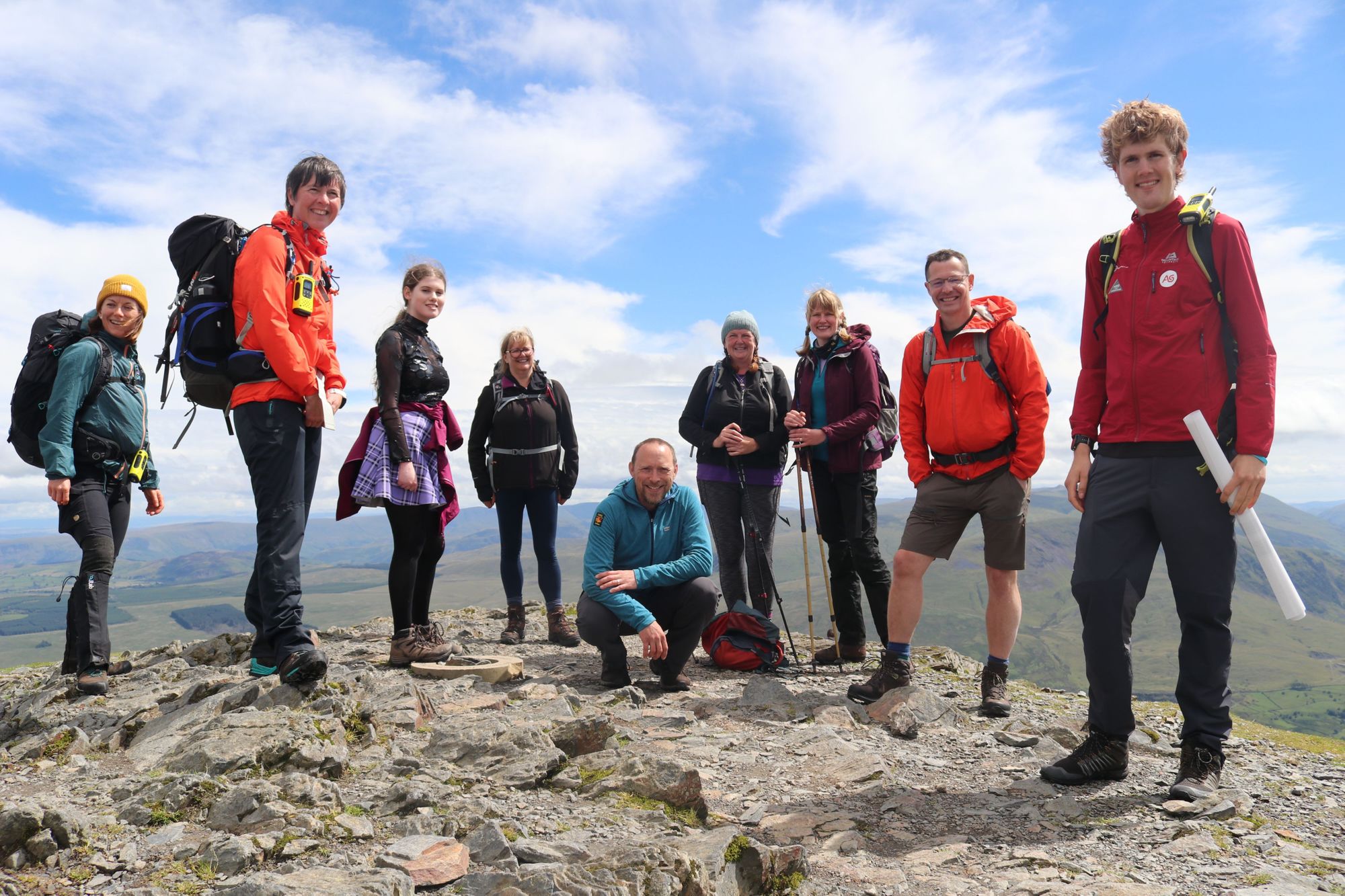
This challenge also proved to be the catalyst for Mind Over Mountains. “After Climb The UK, my biggest challenges have always been mental health closer to home,” he says. “I've openly suffered with anxiety, depression and an eating disorder since I was 16. The outdoors has been my natural health service. And it really struck me that it took me longer to get an appointment for those mental health challenges than it did to cycle, run and walk 5,000 miles around the UK. That was when the opportunity came and the charity started.”
It really struck me that it took me longer to get an appointment for those mental health challenges than it did to cycle, run and walk 5,000 miles around the UK.
The events are pay-to-attend, but at a subsidised rate, and with bursaries for those in financial hardship. “The charity is about walking with like-minded people,” Alex says. “It's easier to open up when you're out in the open. The endorphins and the change of pace allow us to put things in perspective. And there's the natural physical benefits. There's the stress release from exercise - and I think the mountains really do teach us that 'this too will pass'.”
Mind
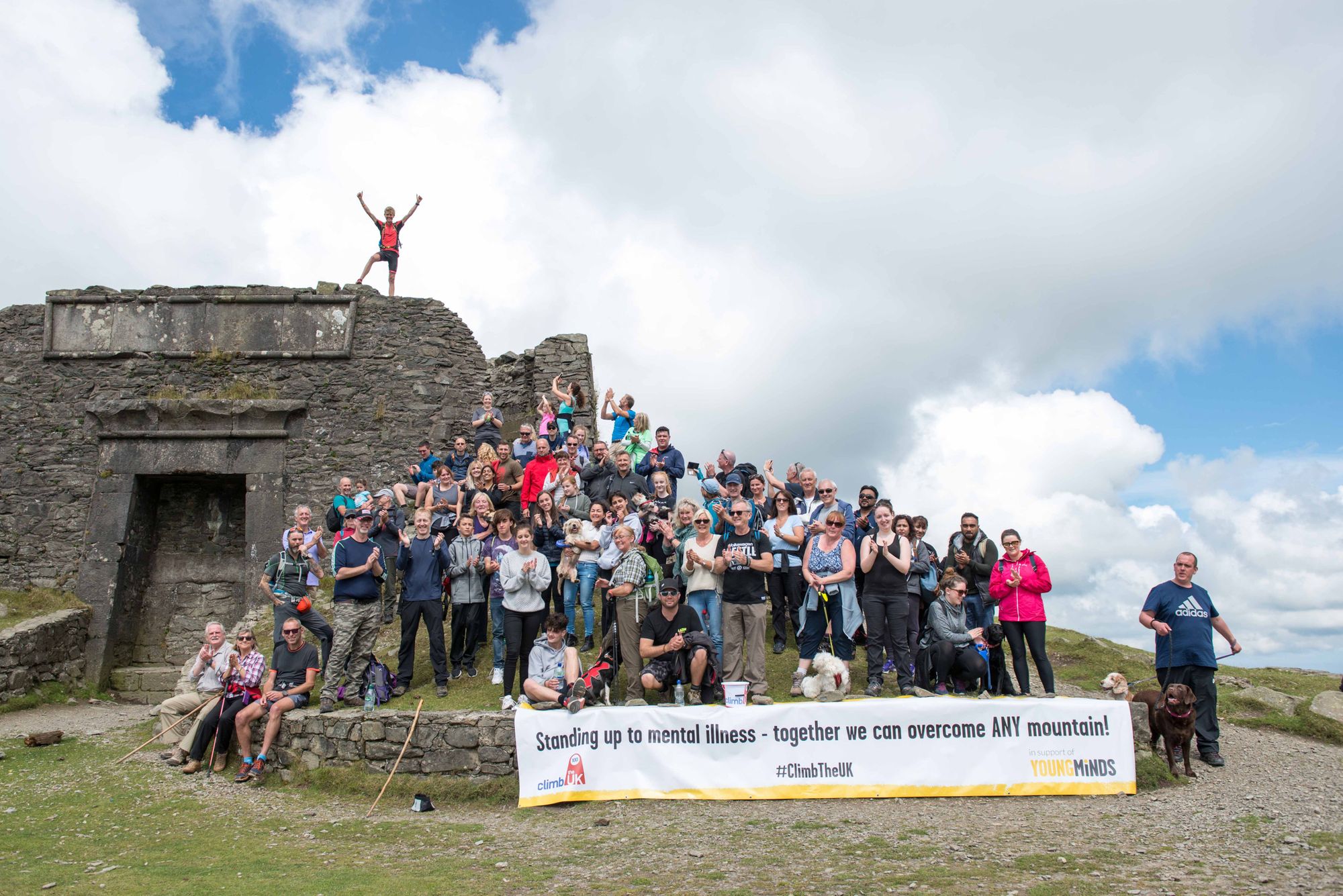
Mind Over Mountains hail the mental health benefits of nature, but they're also keen to emphasise that the great outdoors is not a one-size-fits all, instant fix.
“We're careful not to say that it’s a miracle cure," says Alex. "Because I know myself, even when I'm running in the hills, you've got this epitome of strength and fitness - you're running up a mountain, in the rain and wind - and yet you can still be battling really dark thoughts and low mood and low motivation. But I think it's another tool, and it's all about having tools in the toolkit that help us to manage and intervene with life stresses, anxiety and negative thought patterns."
The outdoors reminds us how strong we are. I don't necessarily come back feeling cured, but that endorphin rush gives me hope.
Alex uses the metaphor of a stress bucket. “Running or being in the hills allows me to empty that bucket before it becomes harmful. It stops it building up.
“The outdoors reminds us how strong we are. I don't necessarily come back feeling cured, but that endorphin rush gives me hope. It gives me distraction, away from a negative situation and allows me to come back with more clarity.”
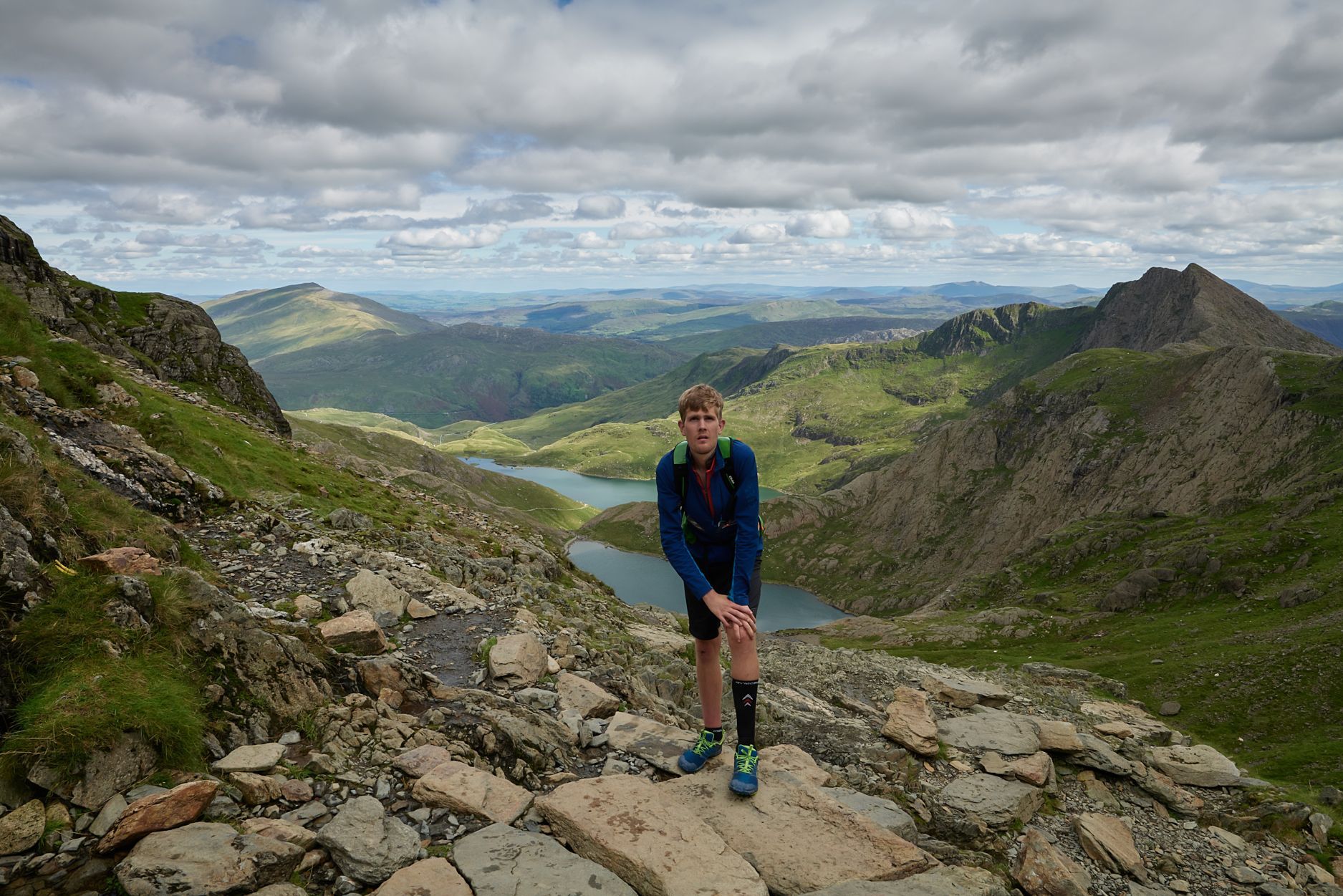
There are endless resources focused on showing the benefits of nature, and accessing nature, on mental health, but ultimately, how does it help?
Isabel Leming is an expert in the groundbreaking depression treatment, rTMS, and provides one-to-one, solution-focused therapy for those seeking to improve mental health.

"It's been shown that people who spend even 20 minutes outside get reducers in the stress hormone, which is called cortisol," she says. "Then you've got epinephrine [more commonly known as adrenaline], and serotonin, a mood regulator which helps you relax - and they both increase when you're outdoors. So that helps reduce stress and anxiety, while also boosting mood."
Leming highlights a study from the Max Planck Institute, published as recently as September 2022, which showed that after a 60-minute walk in nature, activity in the brain regions involved in stress processing decreased.

"There's an area of the brain responsible for processing stress called the amygdala, and the activity within that area significantly reduced for people who were highly stressed and went for a walk in a rural area," she says. "For people in urban areas, there was no effect. The activity didn't get worse, but it was still the same. So the casual evidence shows there's definitely some benefits to being in nature."
Leming takes a holistic approach to mental health, and believes, like Staniforth, that visiting nature is one tool that can be utilised by those looking to benefit.
“Particularly people who have more severe mental health, let's say they're severely depressed, might find that spending time in nature gives them some benefit, but it's not going to be significant enough to get back to the level that they want to be at," she says. "So there's a range of other things that can also help - and I think trying to do a few different things will ultimately have the biggest impact.
I think when you're out in nature, in a more neutral environment, these roles begin to fade away, and there's less pressure to stick up to the social norms.
"Lifestyle factors are a big one - sleep, diet, exercise. Improving your sleep even by 10-15 minutes can have a really big impact on people's mental health. And I think if you can spend even 15-minutes a day doing one thing that either helps you relax or that you really enjoy doing, that helps you slowly build up over time."
I ask her, anecdotally, why she thinks people find it easier to open up in nature.
"You're going to have your mood increase, and feel more relaxed," she says. "But also what happens quite a lot in society, in the home or at work or even at the pub, is that we fit into social roles, and people may not feel able to talk about certain things because of the social situation. I think when you're out in nature, in a more neutral environment, these roles begin to fade away, and there's less pressure to stick up to the social norms. I think there's something in that."

On Mind Over Mountains walks, Staniforth finds exactly that - the open air of the great outdoors coming with an open landscape for sharing, without stigma.
“Walking side by side, you’ve not got that judgement or expectation - or taboos around topics," he says. "There’s a feeling of what is said in the mountains stays in the mountains. We go up the hill as strangers and come down as friends.”
Mountains
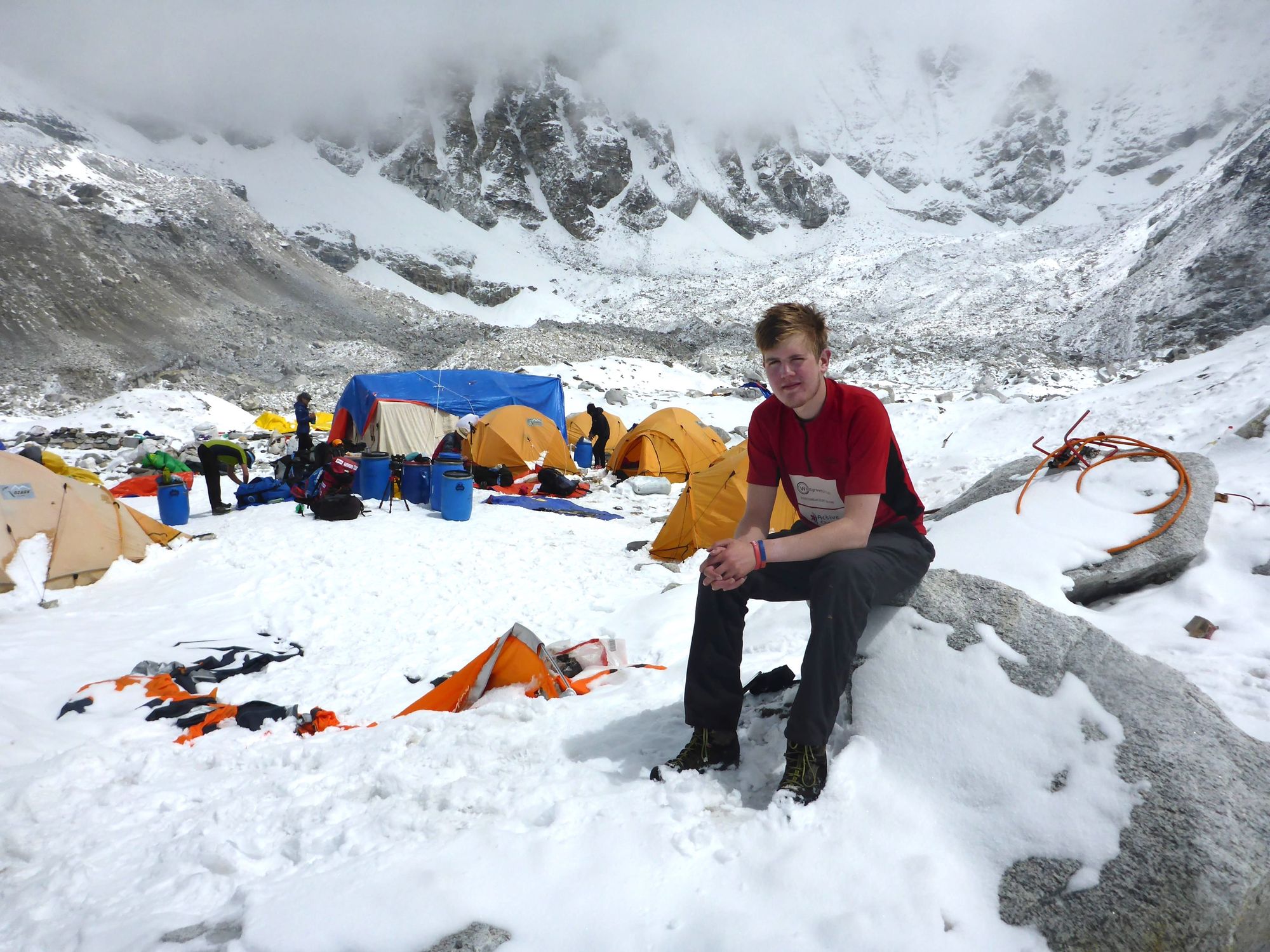
I ask Alex what initially drew him to Everest, all those years ago. “After feeling so useless all the way through school, I think it was a way of proving myself," he says. "I think it was about achieving something substantial, and to finally feel proud of myself. I thought that once I got to Everest, I would finally be content.
When you become dependent on the outcome, you don't enjoy the journey, and you're always going to need something else.
“The problem is that when you become dependent on the outcome, you don't enjoy the journey, and you're always going to need something else. You're always going to want that next thing. I think we see that a lot in society. People need the next car, the next big house, the next best job - and it just makes it miserable. I sunk into depression really badly after Everest. When all the fundraising and the writing had really died down. I hit rock bottom.”
Staniforth recalls breaking down in tears in front of his GP, and found that without that goal of Everest, “I didn’t have much else. It was probably depression, because even though I was still running and training, there was no joy. It was a miserable existence - a genuine illness. After 2016, after Cho Oyu, I didn't get that because I think I found peace with the whole thing.”
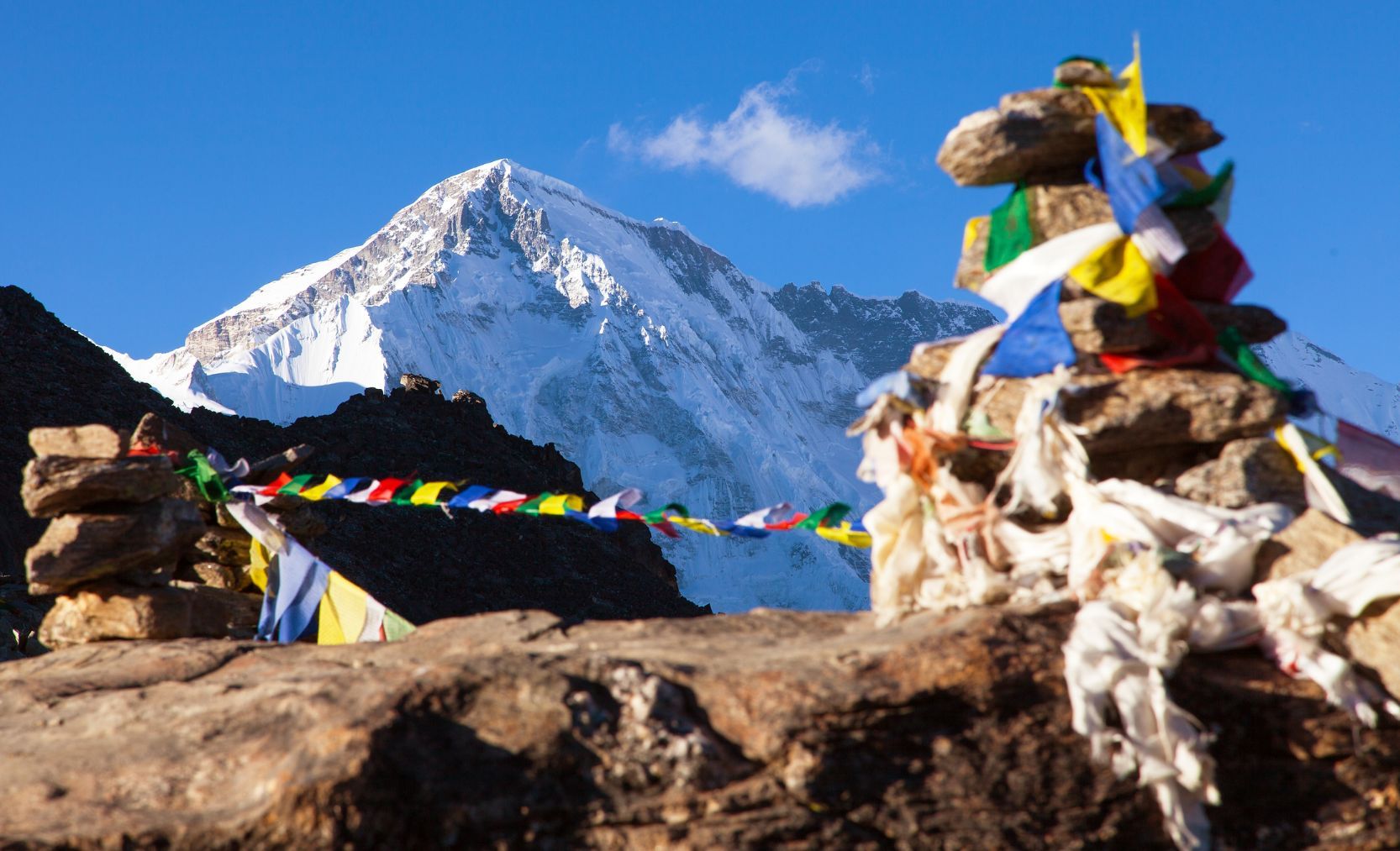
Through his charity work, and adventures closer to home, Alex has now found a different purpose. “I still have mental health battles, but I realised that there was more to life than Everest, and ultimately, the mountains are outside of our control. It’s about how to turn these negative setbacks into something better.”
For Staniforth, Mind Over Mountains has become the focal point of his work, and is the result of the challenges he’s lived through on and off the mountains.
“I want people to have access to the tools I have been able to have,” he says.
“The reason I now speak so openly about this is that by putting my hand up and sharing, I know I can help other people. It was only from hearing other people share their story that I realised that I wasn't on my own. So I would say to people, if they are afraid of asking for help or opening up, you might be surprised to know that actually, you might help yourself, and help someone else too. Don't underestimate the power of a conversation, and just remember that nobody's alone and those dark moments will always pass, even if you think they won't.”
Inspired? Learn more about Mind Over Mountains on their website now!

